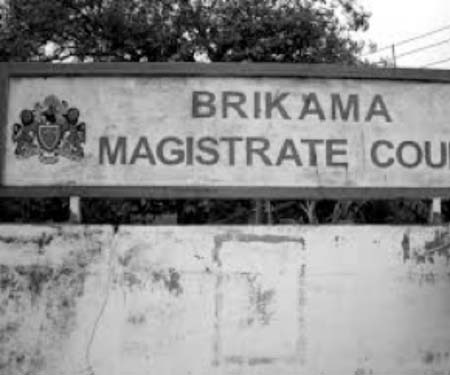
Delivering the ruling, the presiding magistrate told the court that the ruling was predicated upon an application made by state counsel M. Vitalis, to strike out the matter on the grounds that the court lacked the jurisdiction to entertain it, from the face of the claim.
He said the state counsel submitted that the two reliefs touched on employment issues, which is under the purview of the Industrial Tribunal.
The state counsel cited section 29 of the Industrial Tribunal Act and further submitted that the Industrial Tribunal is a special and exclusive court that has the jurisdiction over labour matters, he said.
Counsel M. Vitalis argued that the plaintiff was seeking orders and not a claim, adding that the state counsel further submitted that upon going through the plaintiff’s statement of claim, the plaintiff, Asaac Ague, did not exhibit any document to show he was employed by the Government of The Gambia; hence urged the court to strike out the case with cost.
He said the plaintiff, Asaac Ague, in objecting to the application, submitted that the school in question is a private school and he was the principal and the proprietor of the said school.
The plaintiff argued that the government removed him from his school on the grounds that there was a dispute over the ownership of the school grounds, he said.
He said the plaintiff urged the court to proceed with the case.
“I have carefully read the state counsel’s application to strike out the case and the plaintiff’s argument to proceed with the trial,” said the magistrate.
He said there were two issues for determination, and they were whether the court had the jurisdiction to hear the matter and whether the 2nd defendant, Babucarr Suwareh, was the proper person to be sued.
The 1st issue was based on jurisdiction, and it was trite that the issue of jurisdiction is really the foundation upon which a house could be built on, and without which no structure could be put on.
The preliminary objection raised by the state counsel anchored on jurisdiction and the principles in determination of jurisdiction of a court, he continued.
In determination of jurisdiction, the court would only consider the praecipe and statement of claim that had been filed by the plaintiff, and not any extraneous facts.
The first prayer sought on the preacipe was an “order of the court that from the order dated 24 November 2014, the plaintiff was not dismissed from the employment of Model Senior Secondary School”, and the second prayer was for “an order that the plaintiff’s employment with the aforementioned school subsists on a monthly salary of D15,000”.
“It is apparent on the face of the plaintiff’s claim that the subject matter falls within the jurisdiction of the Employment Tribunal and, consequently, this court cannot make orders when the suit is not within the purview of its jurisdiction,” stated the magistrate.
He said with regard to whether the 2nd defendant was the proper person to be sued depended on facts contained in the statement of claim and preacipe.
“The second defendant, Baboucarr Suwareh, is a civil servant attached to the Ministry of Education and, as a result, he was not a proper party to be sued before the court; henceforth the Minister of Education is the 1st plaintiff in the suit,” he said.
The plaintiff wrongly sued the second defendant, Babucarr Suwareh, in the matter.
“Consequently, the suit is accordingly struck out for lack of jurisdiction, and the suit is dismissed forthwith for dragging the defendants to the wrong court and subjecting them to litigation, and for wrongly suing the 2nd defendant,” he added.
“I hereby award costs in favour of the 1st, 2nd and 3rd defendants in the sum of D50,000 each. The plaintiff must pay these costs on or before, but not later than one month from the date of the ruling,” declared the magistrate.


